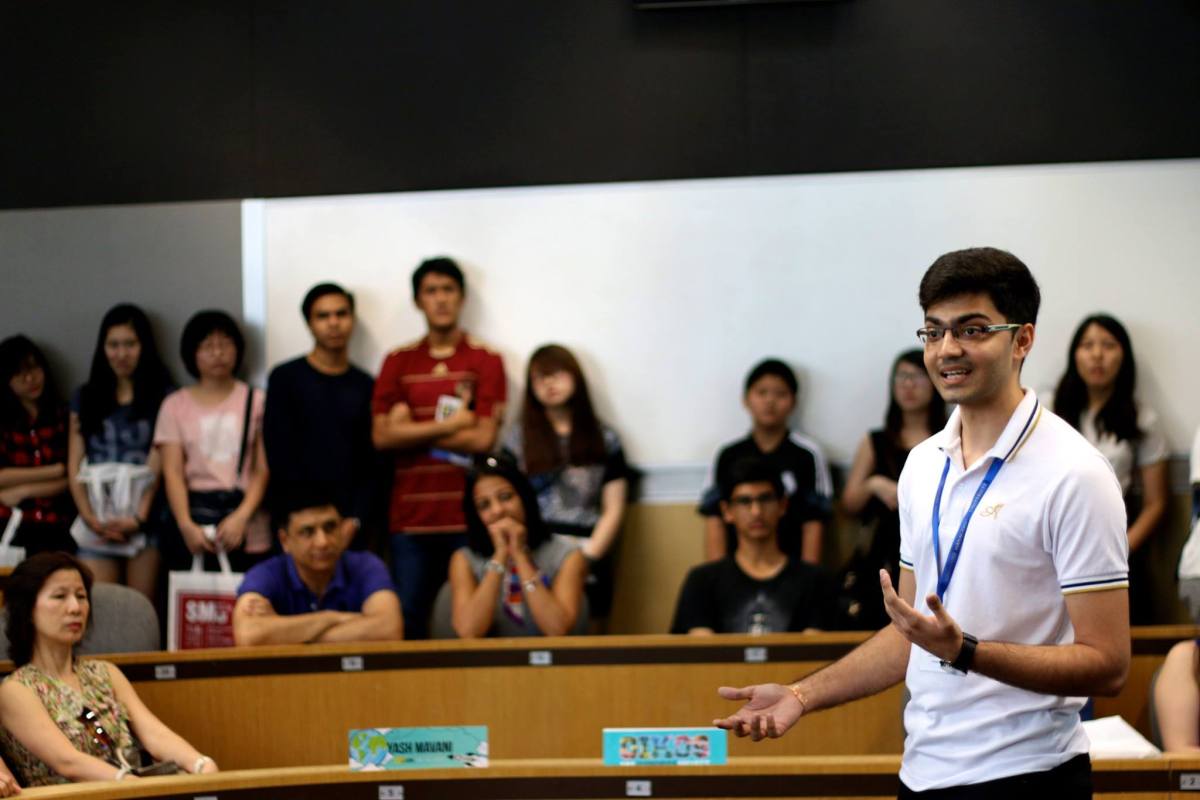
June 2012 – with a Diploma in Banking and Financial Services in hand I was faced with a dilemma: to continue down the same specialisation in a 3-year programme or pursue a broader education in a 4-year one. With the world quickly moving into an era with high demands for adaptability, the latter was my preferred choice.
SMU, with its promise of a flexible broad-based, small class education, was my pick. Economics, however, was a new field for me altogether, but it promised a graduate with an analytical mindset who can adapt and meet the new demands of the world.
Two and a half years after I began my journey in SMU, I can say that SMU and the School of Economics (SOE) did good by me and here’s why:
1. Its progressive curriculum allowed me to learn, not memorise
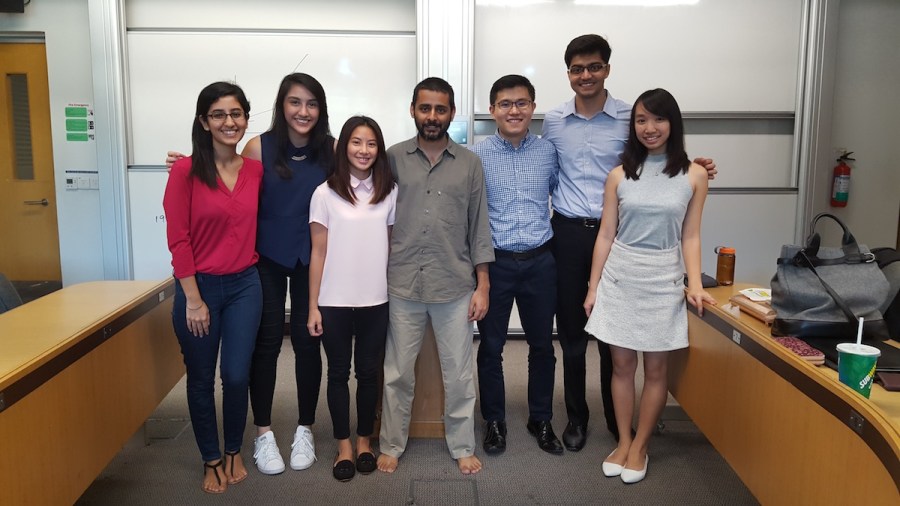
The courses demand understanding of theoretical models, charts, theory and research papers. At first glance, coming from a non-mathematical background, I was a bit nervous, wondering how I would be able to cope with the demands of the courses. The emphasis on progressive learning helped significantly, as modules were structured to help me learn and master fundamentals of mathematics, statistics, economics and econometrics, before introducing the tougher modules. The fundamental modules equipped me with the broad skillsets needed to design my own curriculum in my senior years. This initial structured curriculum meant that no matter what one’s qualification was, a Polytechnic Diploma or an A-Level Certificate, with or without an economics background, one could take up this degree and still gain the knowledge and perspectives that it offered.
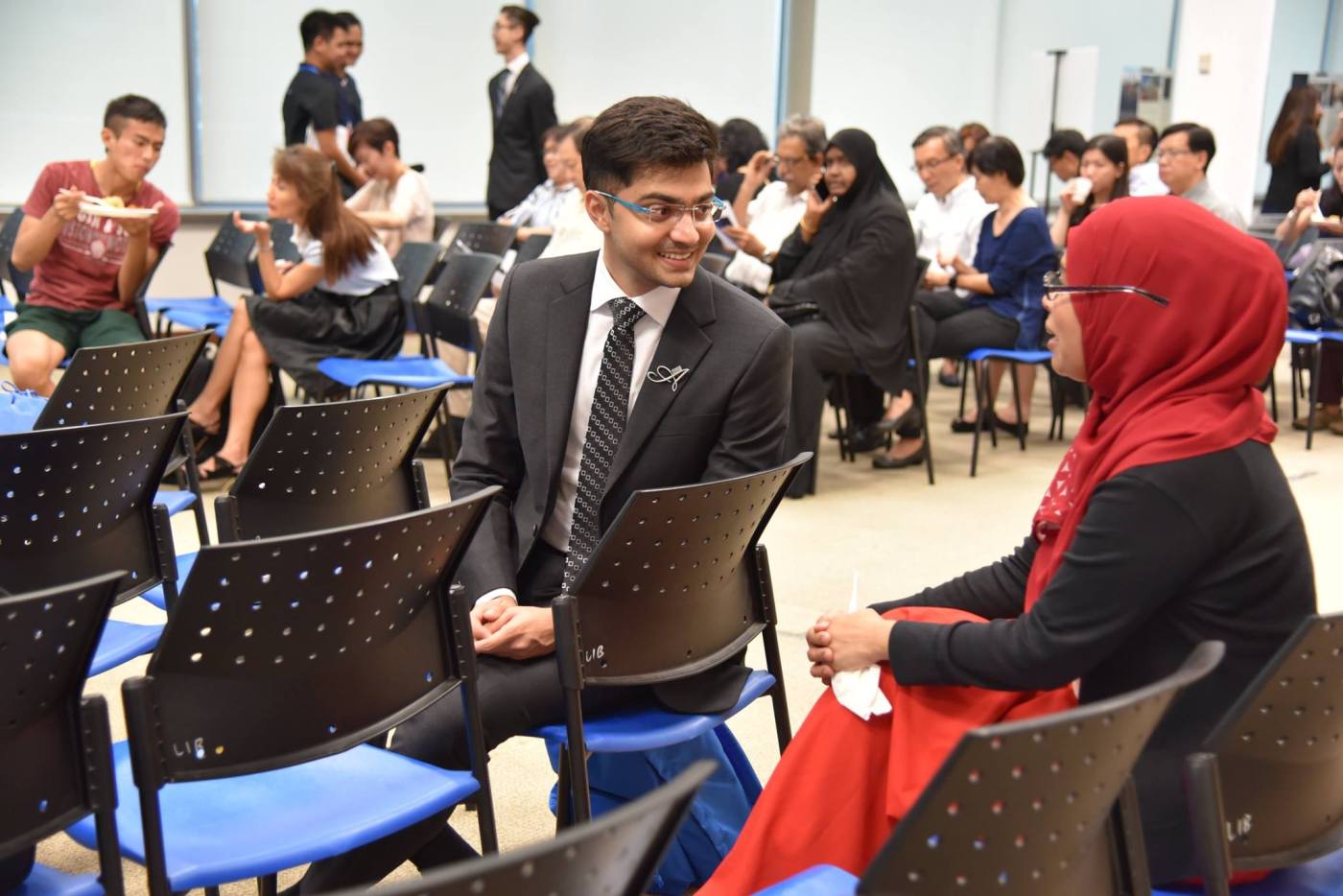
At SMU Parents’ Day 2016
Furthermore, I discovered that if you have the willingness to learn and the humility to ask, there are very helpful Professors, Teaching Assistants (Seniors) and peers who would put in the extra effort to guide you and smoothen your steep learning curve.
2. Its practical and adaptable curriculum made me an analytical thinker
To me, the general curriculum at SOE is meant to train us to be analytical thinkers—to answer the why and how in solving problems. It gave me an inside view of the data driven world we live in today. The projects are designed to help us directly apply what we learn while taking into consideration the world around us; by requiring us to either work with real data or interpret research papers. Moreover, the projects expose us to multiple segments of the society such as real estate, poverty and development, healthcare and finance.
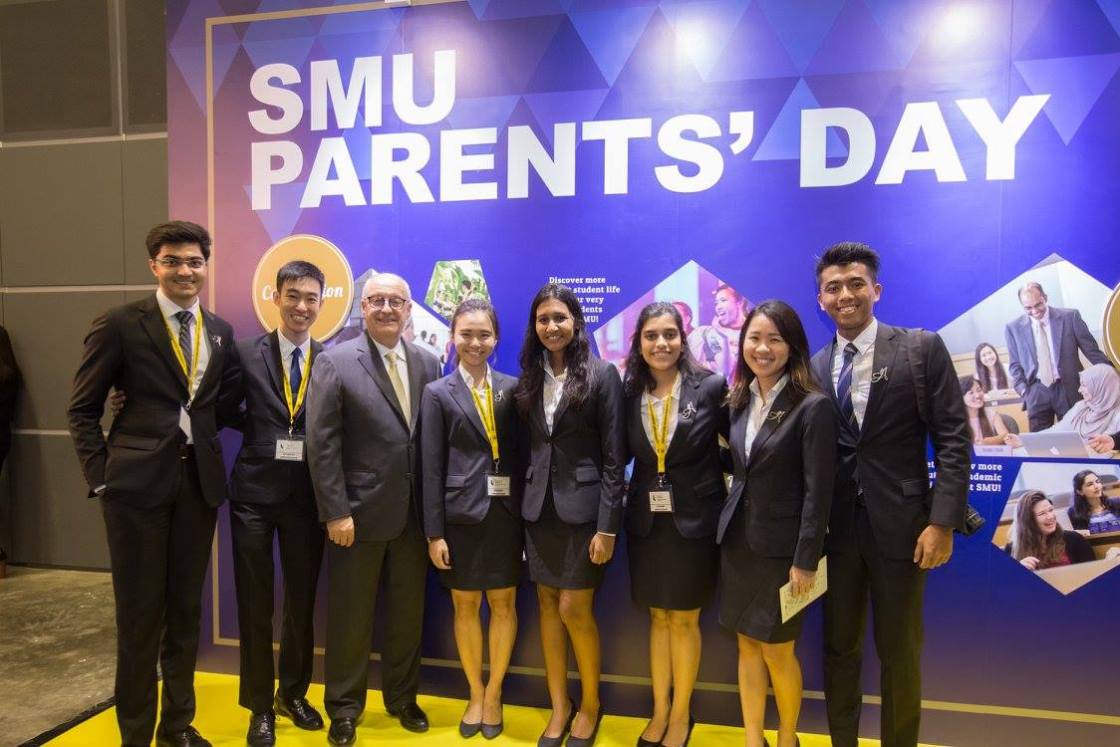
At SMU Convocation 2016 with President Professor Arnoud De Meyer
One key project that rings significantly in my mind would be the one where I used HDB’s price data to understand the difference in impacts between a new MRT line versus an extension of existing line, on the prices of HDB houses. It was memorable because interpreting the data was the easy part, but digging deep into the macro and micro reasons to accurately depict why the results of the data were as such was the bigger challenge. It taught me how to link human behaviour, current affairs, and economic theories together.
Projects like these helped me to hone my skills in different working environments. I have found this transferrable skill very useful in my internships and have learnt that this skill is becoming extremely important in today’s world.
3. Its non-academic opportunities allowed me to grow and develop
Besides academics, SMU is a place where both opportunities for exploring passions and developing oneself professionally are just as abundant. Ask any SMU student and they will tell you about the numerous emails they receive about the various opportunities available. Best part is, for many of the activities, you do not need to have any prior experience.
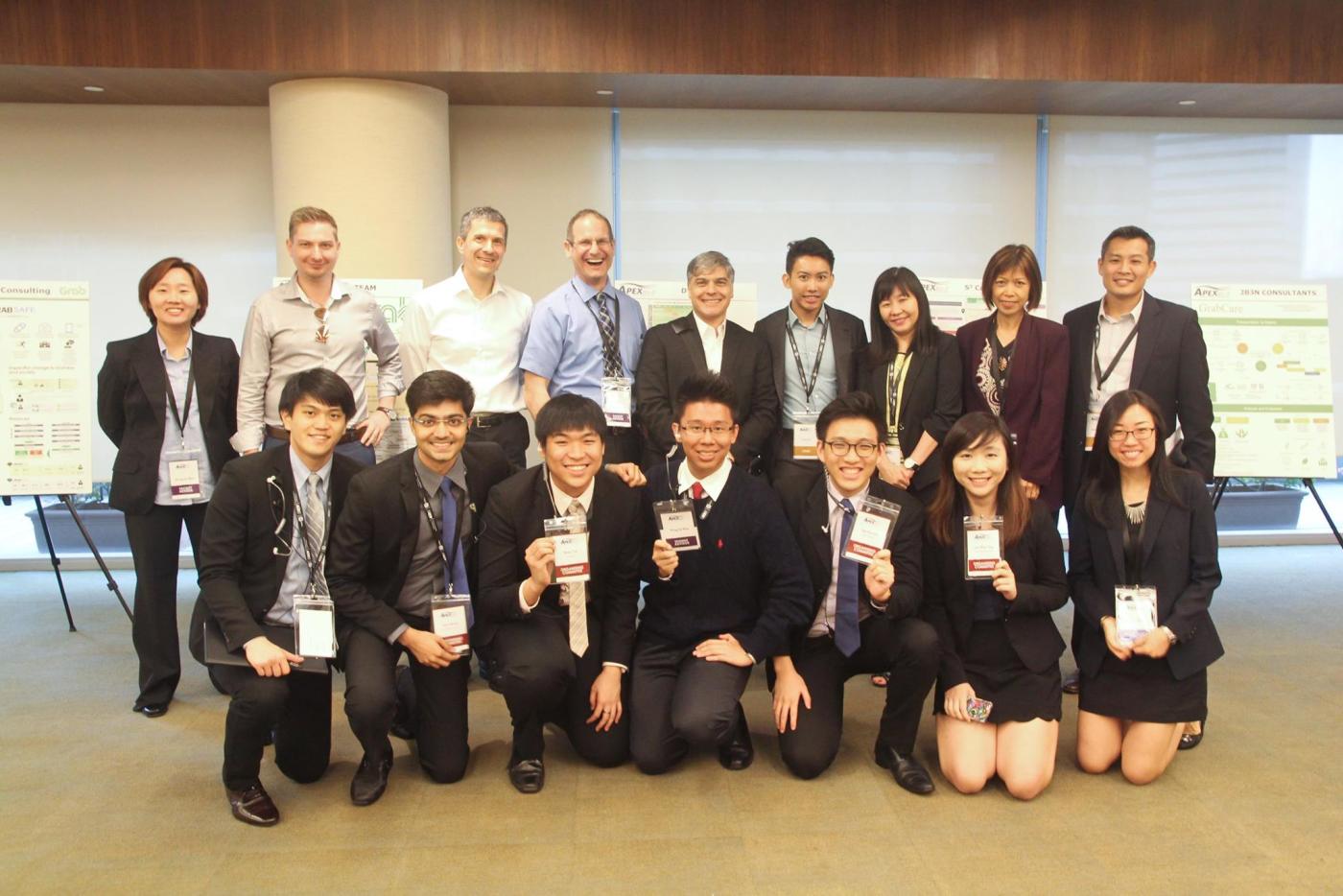
APEX Business-IT Global Case Challenge
In my time at SMU, I decided to try a number of new and varied things. I explored rock climbing as a recreational sport and various aspects of events organisation. I took up roles in marketing, programme planning, external relations and even sports competition planning through events such as SMU Parents’ Day, Economics freshmen camp (under OIKOS—SMU’s Economic Society), APEX Business-IT Global Case Challenge and SMU Gravical. Moreover, I found my passion for public relations through sharing my stories and experiences as part of the SMU Ambassadorial Corps.
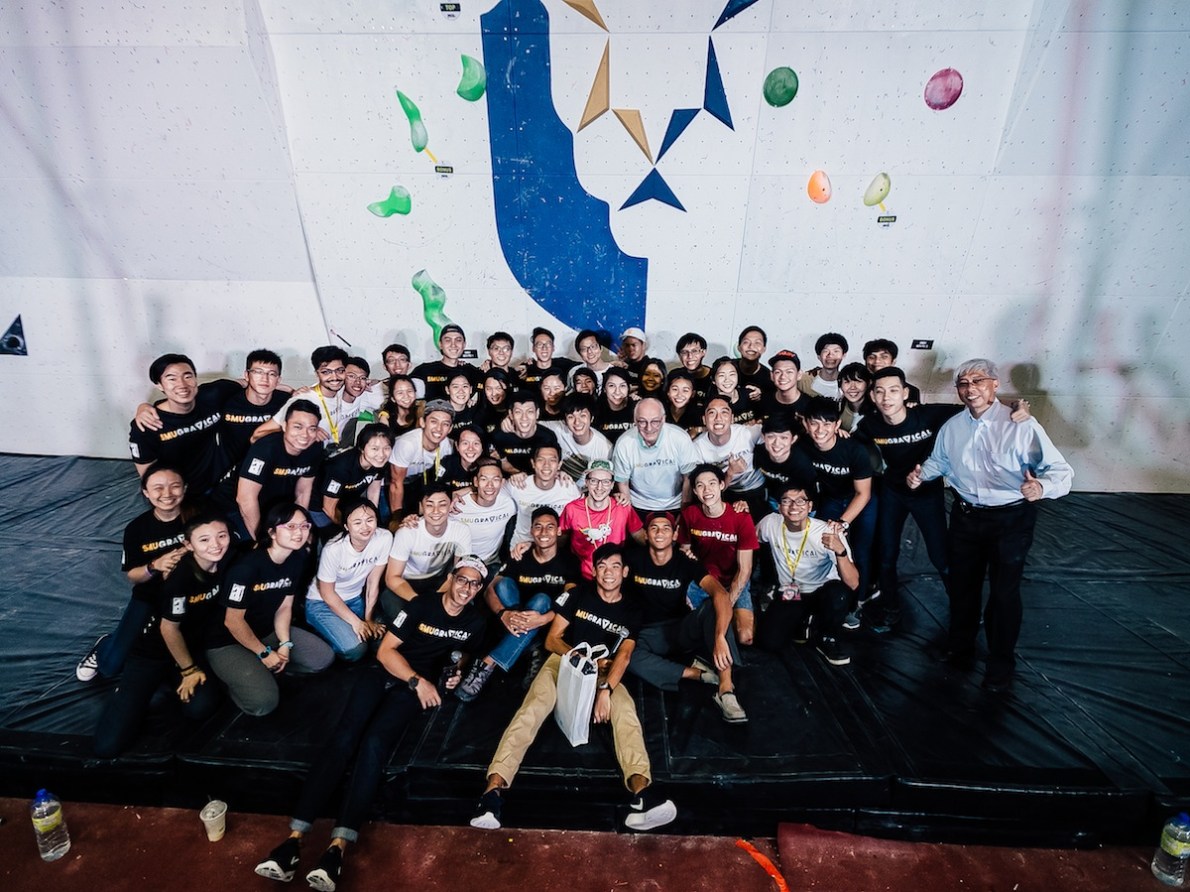
SMU Gravical 2016
Each opportunity has helped further develop me as a person: improving my time management, enhancing my leadership capacity, tweaking my thought process to be more structured, and making me feel more confident in my abilities. On top of that, I’ve made very close and diverse friends.
Overall, coming to SMU—and SOE specifically—is a decision that I do not regret making because it gave me skills, moulded me as a person, and gave me my space to explore my passions.

